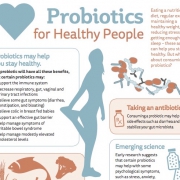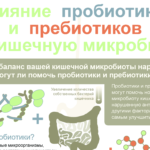Humpty Dumpty and the Microbiome
Prof. Colin Hill, Microbiology Department and Alimentary Pharmabiotic Centre, University College Cork, Ireland (@colinhillucc)
“When I use a word,” Humpty Dumpty said, in rather a scornful tone, “it means just what I choose it to mean—neither more nor less.”
Microbiome science is an evolving discipline, and new terminology is an important part of any developing field. But precise language is important, especially in a multidisciplinary field with researchers from many diverse scientific backgrounds. Language provides us a means of communicating with brevity and accuracy, but this is effective only if the reader is deriving the correct (intended) information from the author.
For example, is there a difference between ‘microbiome’, ‘microbiota’ and ‘microflora’? Are the terms interchangeable, or would it be useful to have them mean related but distinctly different concepts? I have heard people state that ‘microbiota’ refers to the microbial content of an environment, whereas ‘microbiome’ refers to the microbes AND their environment (the biome). I have heard others suggest that ‘microbiome’ actually refers to the genetic content of a particular microbiota, in the same way that the genome is the genetic content of an organism. Some definitions assert that the microbiome/microbiota/microflora only describes the microbial cells (bacteria, archaea and fungi) in a particular niche, while others include non-cellular microbes such as viruses and bacteriophage in their definition. It has also been pointed out that ‘microflora’ is a misnomer, since technically the term ‘flora’ is reserved for the kingdom Plantae.
A few other examples. Do we all know what is meant when someone uses the term ‘metagenomics’? Also, people often refer to analysing the microbiome by 16S – but they are really only analysing the bacterial fraction of the microbiome, the ‘bacteriome’. Of course ‘16S’ itself is not a valid term – it is 16S rRNA genes that are being analysed. Would a clear distinction between microbiome, bacteriome, phageome, mycome, virome, archaeome and all the other ‘omes’ help or hinder our understanding of the subject under discussion? Should most studies actually use the term ‘faecal bacteriome’ rather than ‘gut microbiome’, since it is almost always faeces that is under investigation, and usually only the bacterial component?
I am not going to call out any individuals for abuse of language, since I am pretty sure I could look at my own output and find lots of examples of poorly expressed concepts. But does any of this matter or am I simply being pedantic? I think it does matter, since if terms are poorly defined it may lead to confusion on the part of the reader (or listener), whereas the authors (or speakers) may know exactly what they mean – neither more or less, as suggested by Humpty Dumpty.
ISAPP has convened consensus panels on the meaning of some very commonly used terms such as probiotic1 and prebiotic2, but there is a limit to this activity, and consensus panels cannot be convened for every new term. Even with these consensus papers, we still have a plethora of additional terms surrounding beneficial microbes, including paraprobiotics (killed microbes), psychobiotics (originally defined as probiotics with a mental health benefit, but the definition has recently been expanded to any exogenous influence whose effect on the brain is bacterially-mediated3), synbiotics (probiotics and prebiotics administered simultaneously – a term for which ISAPP is convening another Consensus Panel in 2019), live biotherapeutics, etc, etc. One site I saw referred to bacteriophage as a prebiotic, using the argument that they can influence a microbiome in a selective manner to achieve a beneficial outcome. This is surely a good example of where the ISAPP definition could provide clarity since prebiotics have to be utilised in order to qualify for the term. Other terms we often use without an agreed consensus as to their meaning are ‘dysbiotic’ (when we could use disturbed, or different, or disrupted), ‘unculturable’ (when we usually mean ‘not yet cultured as far as I know but I haven’t really tried’), ‘hypothetical genes’ (when we actually mean ‘function unknown’), ‘stability’, ‘resilience’, etc. It may be useful to have some kind of standardised microbiome dictionary, or an accepted glossary of terms. This is not a new idea (so few of mine ever are), and Julian Marchesi and Jacques Ravel published a lovely short paper to this effect in 20154. The World Microbiome Day website also has a very short Glossary5.
Obviously, words must be the servants of the author and should not restrict expression or limit our ideas, and in many instances context can make it abundantly clear what meaning is intended by the author. But in general, a strict definition is not the enemy of understanding, but makes it easier for author and reader to share common ground.
Who should create and curate such a Microbiome Glossary? Ideally it would be interactive, perhaps along the line of a wiki page, where people could provide their newly coined terms along with a strict definition and arrive at a consensus for commonly used terms. Reviewers of journal papers and reviews could help, by challenging authors on what terms they use, and whether or not they are the appropriate ones.
Meanwhile, I have to go back to the lab to do some comprehensive metagenomics on the gut microbiome – by which I mean that a competent scientist who works with me is going to go into the lab and conduct a particular form of 16s rRNA gene analysis to profile the more abundant members of the bacteriome of a portion of a faecal sample which has been collected, stored and extracted according to our in-house protocols. Obviously!
- Hill et al., 2014. Expert consensus document: The International Scientific Association for Probiotics and Prebiotics (ISAPP) consensus statement on the scope and appropriate use of the term probiotic. Nat. Rev. Gastroenterol. Hepatol. 11, 506.
- Gibson et al., 2017. Expert consensus document: The International Scientific Association for Probiotics and Prebiotics (ISAPP) consensus statement on the definition and scope of prebiotics. Nat. Rev. Gastroenterol. Hepatol. 14, 491.
- Sarkar et al., 2016. Psychobiotics and the Manipulation of Bacteria–Gut–Brain Signals. Trends in Neurosciences 39, 763
- Marchesi JR and J. Ravel. 2015. The vocabulary of microbiome research: a proposal. Microbiome 3, 31
- http://worldmicrobiomeday.com/glossary-of-microbiome-terms/















